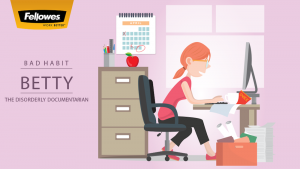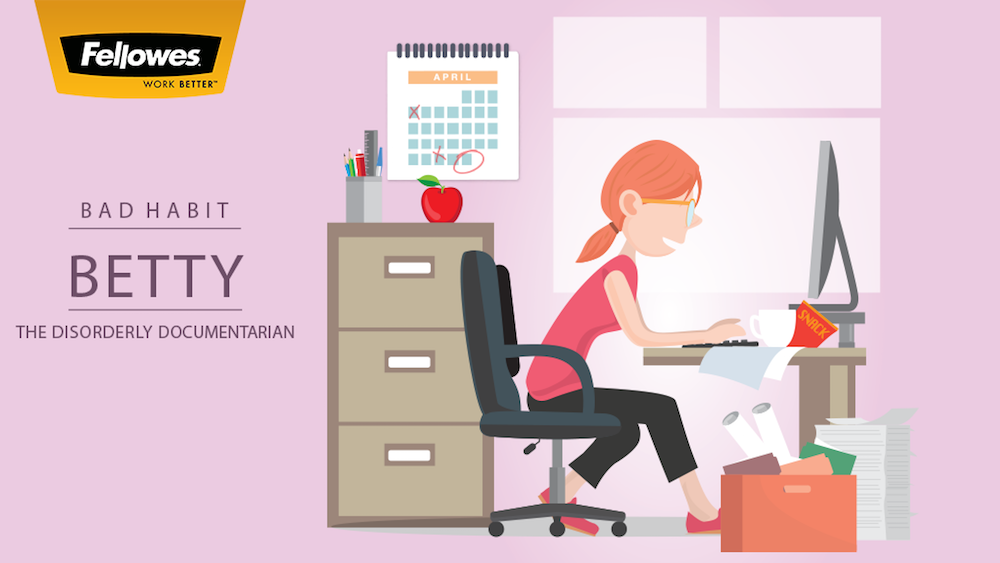The majority of UK office workers have admitted practising a string of unhealthy workplace habits despite knowing they contribute to health problems such as backache, neck pain and eye strain.
New research commissioned by leading office ergonomics expert Fellowes has found that 94% of employees sit for long periods of time without moving around, 86% forget to give their eyes a break from their computer screen and 78% slouch at their desk. This is despite 91% of respondents agreeing that being comfortable when they’re at work improves their overall quality of life.
The results highlight a worrying trend among office employees throughout the UK. Despite knowing that bad habits impact health and wellbeing, people are doing nothing to improve workplace behaviours, with 25% having taken time off work due to health problems associated with working at a computer and 45% having taken medication.
Employers must do more to educate employees and dispel any embarrassment or stigmas around workplace wellbeing, as shockingly, 58% of workers are more likely to suffer in silence than raise concerns about their health.
Making just a few simple changes could have a significant impact on employee wellbeing, with foot rests, wrist supports and height adjustable desks cited as some of the ergonomic products that would help reduce absences caused by work-related ailments.
Worryingly, 20% of employees have resorted to creating improvised workstation accessories to improve their comfort due to a lack of available purpose-built products in their office. Furthermore, just 22% have had a workplace risk assessment in the past six months.
Darryl Brunt, UK & Ireland Sales and Marketing Director at Fellowes said: “While many people make efforts to eat well and exercise to stay fit and healthy when they’re away from the office, it seems they’re ignoring the potentially very serious affects their workplace habits can have on their wellbeing.
“Companies must do more to educate and improve conditions for their staff, as not only do they have a responsibility for their wellbeing, but ultimately it benefits the business; a good working environment is proven to increase employee productivity and performance, making a happier organisation all round.”
Fellowes is committed to getting the nation’s office employees working well for life and the research has identified four personas people can relate to in order to discover their own workplace habits.
The research highlighted that most respondents associated themselves with being a ‘Bad Habit Betty’, with 52% saying they try to take good care of themselves but have some bad habits.
One-third (29%) considered themselves to be ‘Healthy Hugos’ who take good care of themselves both physically and mentally and are therefore least likely to suffer from ailments caused by their working environment.
Just 3% office workers identified with ‘Laidback Lucas’, who does not prioritise taking good care of themselves, and 16% felt they were ‘Struggling Stellas’ who find it hard to take care of their physical and mental wellbeing even though they know it to be important.
Those who identified with ‘Struggling Stella’ and ‘Lazy Lucas’ are most likely to suffer in silence rather than raising concerns they have about workplace health and wellbeing, while all (apart from the ‘Lazy Lucas’) felt it would be beneficial to have workplace wellbeing ambassadors at their company.
For information on how workplace habits and specialist workstation ergonomic products can improve employee health and wellbeing and to take the Fellowes Working Well Assessment, please visit ergo.fellowes.com/bad-habits.php.















